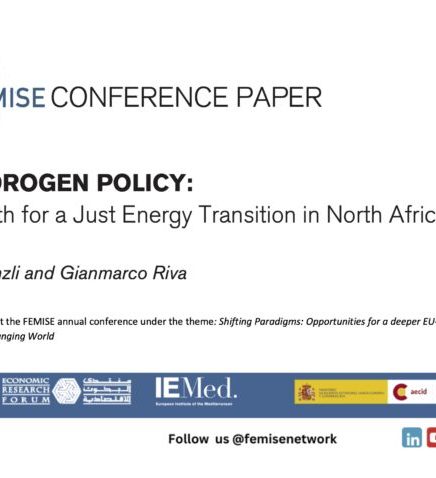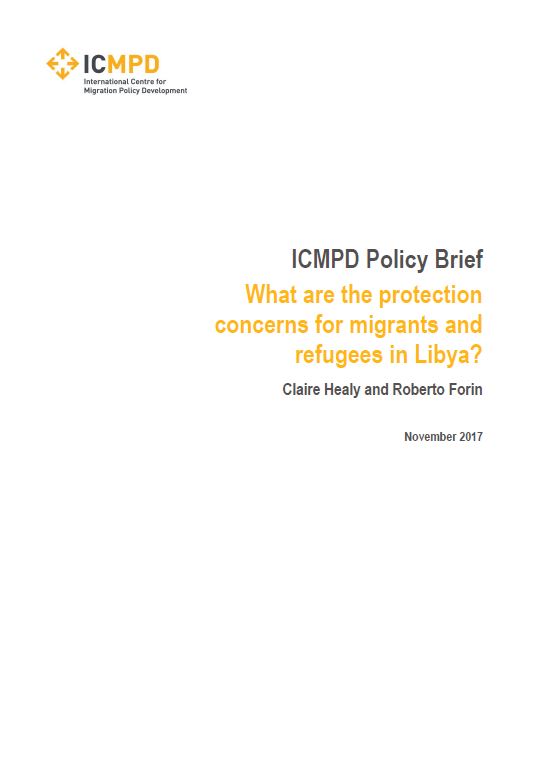FEMISE Conference Paper 7: EU Hydrogen Policy: What Path for a Just Energy Transition in North Africa?

This paper was submitted and accepted for presentation at the FEMISE 2023 Annual Conference, “Shifting Paradigms: Opportunities for a Deeper EU-Mediterranean Integration in a Changing World,” Barcelona, Spain, 27-29 September 2023 under the theme: A better integrated Euro-Mediterranean region.
With the European Green Deal, the EU has embarked on an journey to become climate-neutral by 2050. As a pivotal component of this strategy, green hydrogen is set to reach 10 million tonnes of production-import by 2030: an ambitious target that is difficult to achieve without contributions from third countries. To this end, the EU has increasingly engaged with its North African partners, which represent a great potential for cooperation opportunities thanks to their abundance in renewable energy resources, notably solar and wind. The convergence with the EU’s demand for clean energy thus offers a compelling backdrop for bilateral collaboration, positioning North African as a major hydrogen partner.
Despite many positives that a hydrogen market in North Africa can have, its development process is not risk-free. Challenges range from energy poverty, water scarcity, and land-use conflicts, to socio-political factors, such as poor governance structures, insufficient stakeholder engagement, and the absence of clear policy frameworks. These limitations suggest that further research is needed in the study of EU hydrogen policy in North Africa. It is against this backdrop that our work wants to offer a critical inquiry on the matter, highlighting its multiple facets and interdisciplinary dimension. By exploring the concept of energy justice as an analytical perspective, we evaluate EU hydrogen policy in Algeria, Morocco, Egypt, and Tunisia. The intent is to shed a light on its opportunities and risks, expose instances of energy injustices, and put forth suggestions to alleviate them. Hopefully, this would enhance the effectiveness of EU hydrogen policy in fostering a more equitable and just energy transition in these regions.
Latest Publications
































 Syria
Syria 



